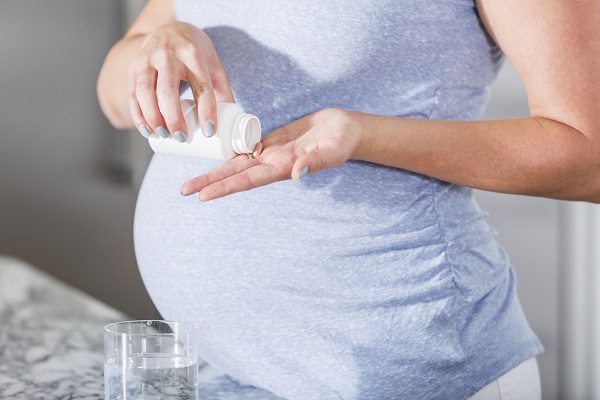When you’re pregnant you have to mind what you eat in order to give your body and baby the best chance possible. Some supplements are even recommended to be taken before pregnancy so it’s important to watch what you eat when trying for a baby as well. As a lot of the good stuff is difficult to find in our everyday foods, we look to supplements to make up the rest.
Here’s the info on the supplements we need to keep fit and healthy during pregnancy.
Folic acid or folate
We all know about this one. An adequate supply of folate in the body helps prevent conditions like spina bifida in your baby. It is recommended that folate is taken both when you’re trying for a baby and throughout your pregnancy – and as many pregnancies are unplanned, all women of child-bearing age should be taking a folic acid supplement. Folate naturally occurs in foods such as asparagus, dark leafy veg, bananas, beans, peas and lentils. Folic acid is the synthetic form of folate. As folate is difficult to get an adequate intake of through natural sources, about 0.4 mg (or 400 micrograms) of folic acid per day is recommended during your pregnancy.
Note: The MTHFR gene is found in all human bodies. It’s the gene that breaks down folic acid. In some people, the gene can be mutated or non-functioning, which can pose a danger to any subsequent pregnancies. It is not standard protocol to test every pregnant women for this gene, but it could be the cause of miscarriage or genetic issues with another pregnancy.
Iron
Although this is a well-known supplement for menstruating women, it is needed only if the woman is anaemic. The RDA for iron is 18 mg per day and can be ingested through dark green leafy vegetables, lean meat, beans, peas and lentils. You can check for low iron levels with your medical care team or GP.
Need some ideas on what to snack on during your pregnancy? Read here for five foods to boost your pregnancy!
Probiotics
Probiotics are crucial for our health whether or not we’re pregnant. Studies have shown that probiotics can be responsible for boosting the immune system, improving digestive health and treating urinary tract infections. Quality probiotics taken during pregnancy will give your baby a good dose of beneficial bacteria through a vaginal delivery (unfortunately this isn’t possible through a c-section). This can help prevent ear infections as well as stomach upsets and common illnesses in the first few months of life.
Vitamin D3
People in Ireland generally have a vitamin D deficiency so in general, we should all be taking vitamin D supplements. This is more important during pregnancy however, as vitamin D works in tandem with calcium to promote bone health. Living in Ireland, we don’t get much sun, which is crucial for the production of vitamin D in our bodies. Because of this it’s recommended that we take approximately 10 mg of vitamin D per day.
For more information on how you can mind yourself during your pregnancy, check out the HSE website.
maternity&infant
Originally posted 2017-02-15 11:46:52.









